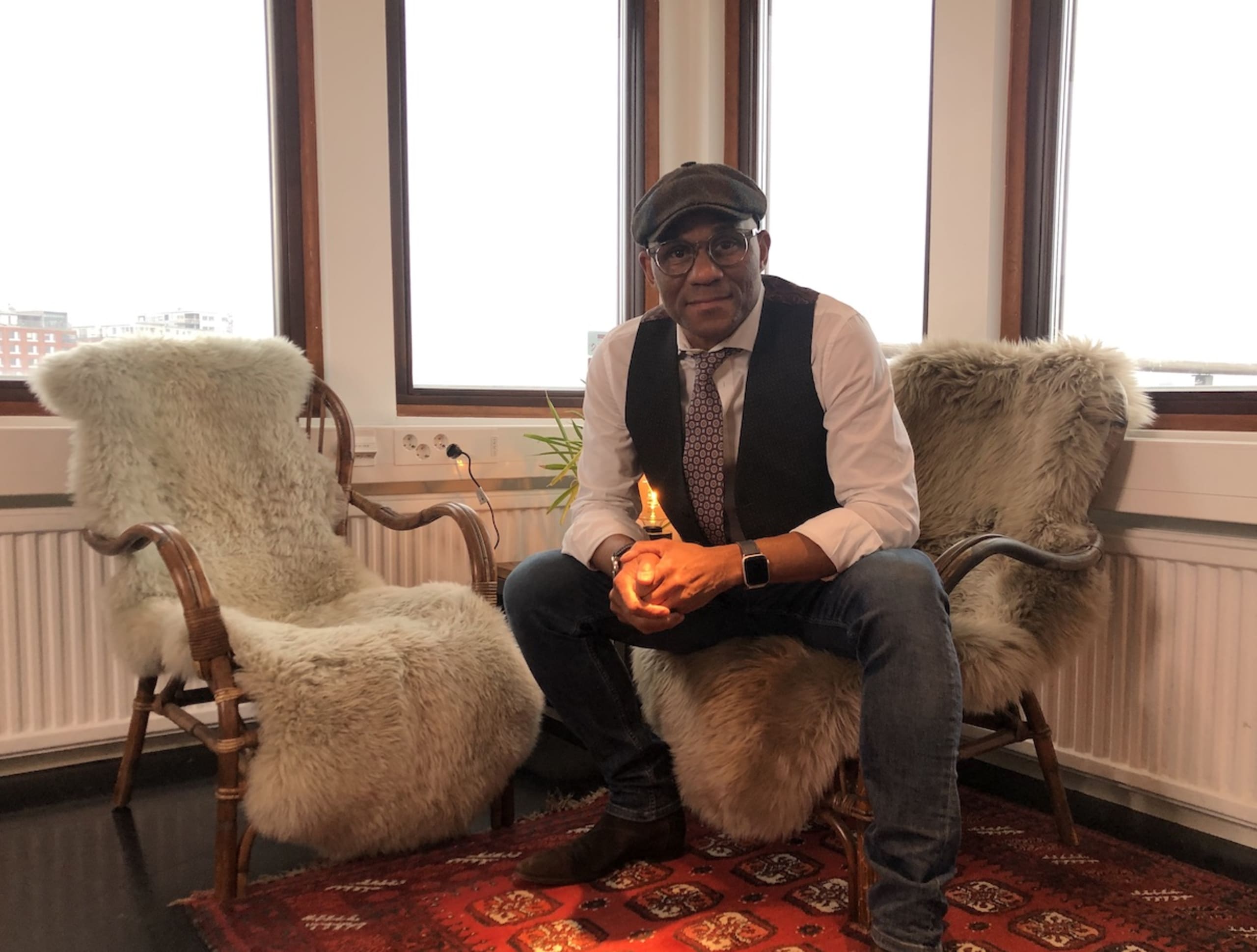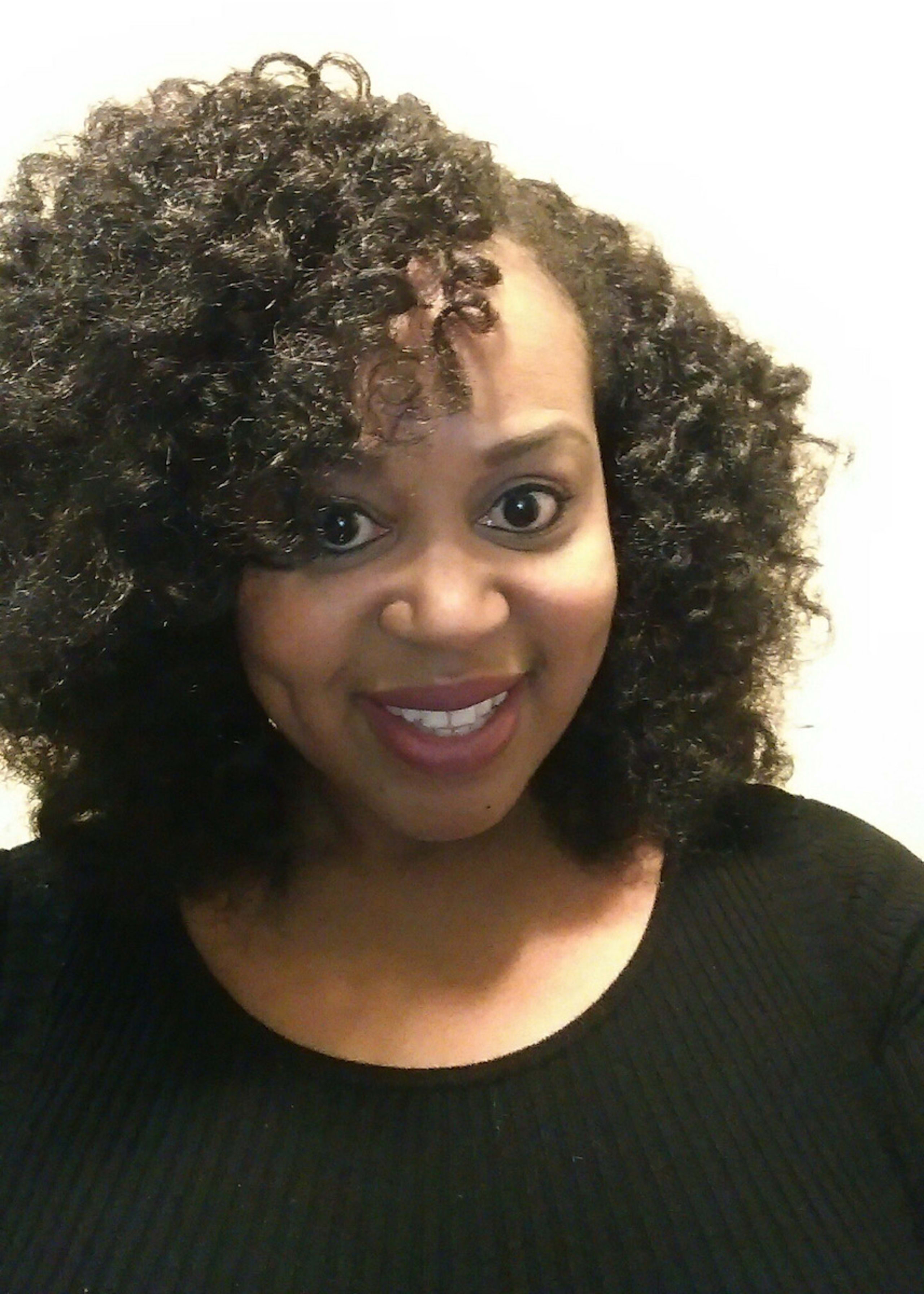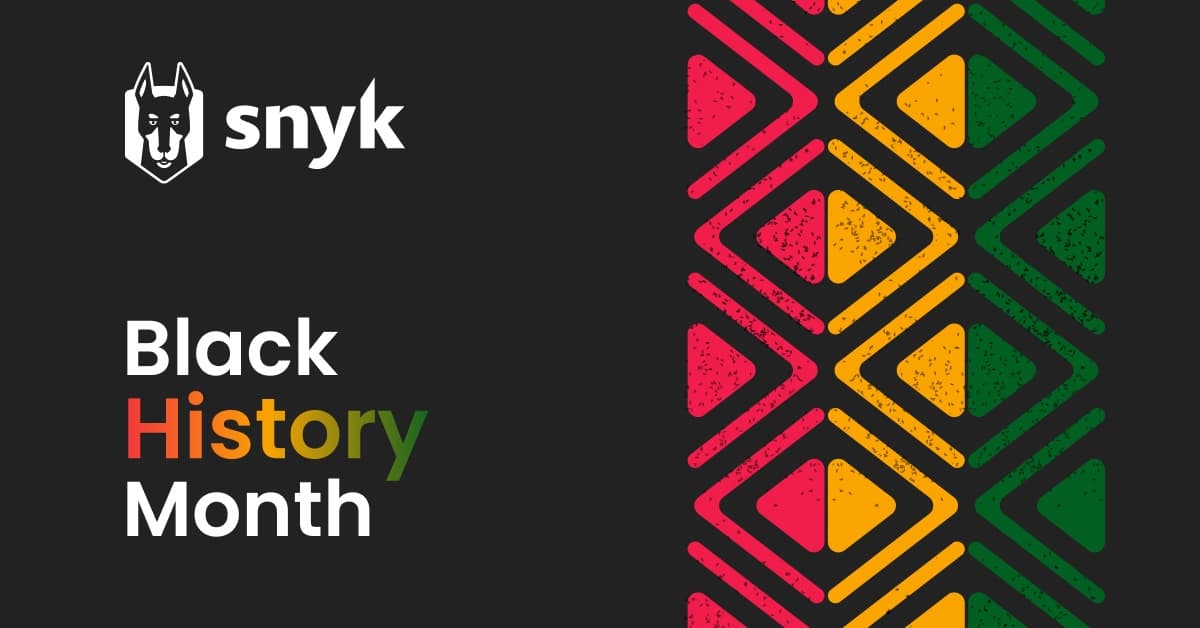Black@Snyk: Celebrating Black History Month 2022
Snyk Team
24 février 2022
0 minutes de lectureIn honor of Black History Month, we sat down with three members of Black@Snyk, our employee resource group for Black employees and allies, to learn more about their personal stories. Although Black History Month originated in the US, Sharon, Michael, and LaToya share what their experiences were like growing up in communities around the world and everything they’ve learned along the way.
Sharon Ikhuoria, Senior Sales Development Representative (SDR), London, England

Sharon joined Snyk in May 2021 as an SDR, and was promoted in December 2021 to a Senior position within the team. She comes from a family of small business owners and she has two degrees, and is currently pursuing her Doctorate in Business Administration.
Black History Month is about celebrating important Black figures who shaped where we have come from and what we have achieved as a minority. It’s a month of celebration and understanding that we are just as important as any other race and that we are equals regardless of the color of our skin.
I was born in Nigeria and moved to Germany when I was 2 years old, so I am Afro-German. Growing up here in Germany, I did experience racism, and remember asking myself questions like, “Why am I not like other kids? Why do I look different? Why do people treat me differently?”
Growing up, my parents always told me that I needed to try my best and be twice as good as my other classmates because people will look at my skin color, and my skills and be twice as skeptical about me. I needed to constantly prove that I was good enough, which is difficult to tell a 10-year-old who really doesn’t understand what race is or why it matters. I think a lot of Black people grow up with that mindset — especially those of us who are the first generation growing up in a new country our parents immigrated to, and knowing what our parents went through to migrate here and the challenges they faced along the way.
While many people speak about Black history in the US where there is a larger Black population, in countries like Germany, I think it’s more difficult to find your footing here. We don’t have as large of a Black population in Europe and oftentimes, you are the only person of color in the room. Sometimes, when I speak to people in German, they are shocked I speak German without an accent. They look at my skin and automatically assume I am a foreigner and not educated or fully integrated into German society and culture, even though I grew up here.
Just last week, my brother who is 15 years old, came back from school and told us that he had some sort of dispute with a classmate. He asked one of the students who was being disruptive to be quiet because he was making a lot of noise, and the student told my brother to go back to the plantation and pick wool, and called him the N-word. Of course, my family and I were extremely upset. Experiences like this contribute to psychological trauma. These experiences have an impact on you throughout your entire life.
I think it’s very important to uplift kids and show them that there are other people just like them who are facing and seeing the same things that they are experiencing. Representation matters a lot and it has always been important to me to keep learning and growing. I am quite competitive and I am proud of everything I’ve been able to accomplish in my life so far. I completed my BSc in 2020, went on to complete my MSc in 2021, and now I am enrolled in a DBA program (Doctor of Business Administration). I really love studying and writing theses, but my drive also comes from showing people in my community and where I am from, that these things are achievable. I want to be a role model and representation for other people of color to see that they can achieve this too and it’s so rare here, especially in Germany, to see a person of my skin color who has a doctorate title.
While school is not for everyone, my advice is to do what you’re best at, and ask good questions. I didn’t know I would end up working in tech at Snyk. All I knew was that I needed to get an education and then Snyk just happened. Heidi, my recruiter, got in touch with me and within a few days of interviewing, I got the job offer at Snyk. I was hired while I was still writing my dissertation – it was hard balancing school and work, but somehow, I did it. I am not a technical person but I wanted to challenge myself.
I think it’s important to keep challenging yourself, and learn and believe in yourself, and not let the psychological trauma prevent you from achieving your goals.
Michael Poe, Sales Account Manager, Malmö, Sweden

Michael Poe joined Snyk in 2021, after his previous company, FossID, was acquired by Snyk. Over the years, he’s built a robust career in sales and marketing and has worked and lived in five different continents!
To me, Black History Month is important because it shines a necessary spotlight on the accomplishments and lives of many people whose contributions might otherwise go unnoticed or unrecognized. It’s also a time to reflect on what “being Black” in the world means today. As a father, I believe it's important to educate my son on his ethnicity. This is especially important because we live in Sweden and his experience is unlike mine where I grew up in the US and had more awareness of “being Black”. Therefore, this year, I’ve started to use the opportunity to share with him more of my experiences and what he might expect or needs to be aware of as a biracial person.
For example, just yesterday, he pointed to his skin, and he asked “Well, what am I?” He is 10 years old and he is just now beginning to ask these types of questions. I told him, “It depends, how do you identify?” I explained to him that he’s biracial and he asked me what that meant. As a father, my goal is to share my experiences with him and prepare him for how the world may see him, especially if it’s not the same as the way he sees himself. I don’t want to paint a negative picture for him, but I also want him to be prepared.
One of the ways I do this is by discussing news stories with him and things that are happening that he will hear about. For example, after George Floyd was murdered in May 2020, there was a big Black Lives Matter rally in Malmö. My wife, son, and I all went to the rally and I had to explain to him why this was important and why it was relevant for us to show support.
When it comes to my own history, I was born in West Baltimore and that’s where I should have ended up. My mom was a single mother when she had me at 16 years old, but she made a decision to move us to New York City. I was accepted into prep school and then went to boarding school in Massachusetts so I was not a part of the public school system in New York City past 9th grade. Growing up was a bit difficult when it came to my identity. I was trying to find my place but at the time, I felt that I didn’t fit into either community. When I was around others with my same skin color, I felt I didn’t fit in even though I looked similar to them. When I was around those who didn’t look like me I also felt that I didn’t fit in — my strategy was not to necessarily focus on what makes me different, instead I focused on what makes me me. That’s what worked for me, but my son may be way more curious than I was.
If I were to give advice to other parents who are navigating the same types of conversations with their children, I would tell them to allow their child the freedom to lead the conversations. Lead in terms of breaking the conversations up, indicating how deep they want to go with them, and then it’s our responsibility as parents to listen, because talking does not allow us to get the needed information or insight that they are offering. One of the main messages I hope my son understands is that there is nothing wrong with being different. I don’t want him to be afraid of differences because differences are what make the world an interesting place.
LaToya Muff, Senior Lifecycle Marketing Manager, Partners, Atlanta, GA

When LaToya joined Snyk in January 2022, she took on a brand new role within the Growth Marketing team that’s focused on leading user experience efforts for partner integrations and building a communications lifecycle that encourages usage from our partners. She loves how technology has revolutionized the way the world does business and how marketing plays an important role in helping companies adapt to digital transformation.
Black History Month is important to me because it celebrates the accomplishments and sacrifices of African Americans throughout history and helps us better understand their stories.
I grew up in a small town called Plains, Georgia, where President Jimmy Carter was born. Back when my parents were growing up in that town in the 50s and 60s, there was still segregation. They don’t talk about it often, but sometimes they tell me stories from those times that I never heard before that are shocking. For example, my grandparents were sharecroppers, and one of the farms my grandparents worked on was one of the first to be desegregated where they cultivated a space for Black and white farmers to work together. This co-op community was different than the traditional sharecropping experience and some people in the town didn’t like that. My parents remember the KKK at their doorstep — they were consistently met with the Klan disrupting their business and burning crosses in their lawn. It's crazy to think about what my grandparents dealt with, especially since it wasn't that long ago.
Growing up, I felt that it was hard to thrive in southern Georgia. I wanted to move to a place with more opportunities, which is why I moved to Atlanta. Atlanta is historically a place where Black people are able to thrive. There is a large population of Black people in and around the metro Atlanta area so it creates a sense of comfort. It’s amazing to see people who are successful in this city but it is also a Southern city so it can be challenging. Atlanta is definitely a mecca for Black people, but we are not immune to racism here.
I feel that there has been a lot of growth in the Black American experience, but not enough progress. For example, Black people are still less likely to have generational wealth compared to other ethnic groups, and so many steps have been taken historically to limit Black people from thriving and creating generational wealth. We see pockets of improvement as individuals, but as a whole, we are still very behind.
Thinking back to where I come from and how I got to where I am today, one of my biggest role models comes to mind. When I was younger, we had a career day at my school, where they invited previous graduates to speak about their experiences with students. One of the speakers was a systems analyst and his career path inspired me. I realized at the time that the entire world was going digital and I wanted to be a part of that transformation. I decided to study computer science and during my degree, I was exposed to Marketing as an elective. From there, I took my passion for math and science and merged it into marketing and what I do today in my career, like running campaigns, and user experience.
As someone who has built a career in tech over the last decade, when I reflect on those within the Black community who are thinking about making the move to tech, I would want them to know that in many regards it may seem overwhelming at first. As the tech sector quickly grows, it can feel as if we’re being left behind and the disparities are greater. Don’t feel discouraged by a lack of visible diversity, don’t be afraid to take up space, and don’t feel compelled to play a character to fit in. Understand that your life outside of work may be a lot more different than your colleagues, especially leaders, and that’s okay. Try not to look at it as a disconnect. Embrace the diversity and be comfortable in your own skin.
Interested in building a career at Snyk? Check out our open roles and learn more about what life at Snyk is like.
